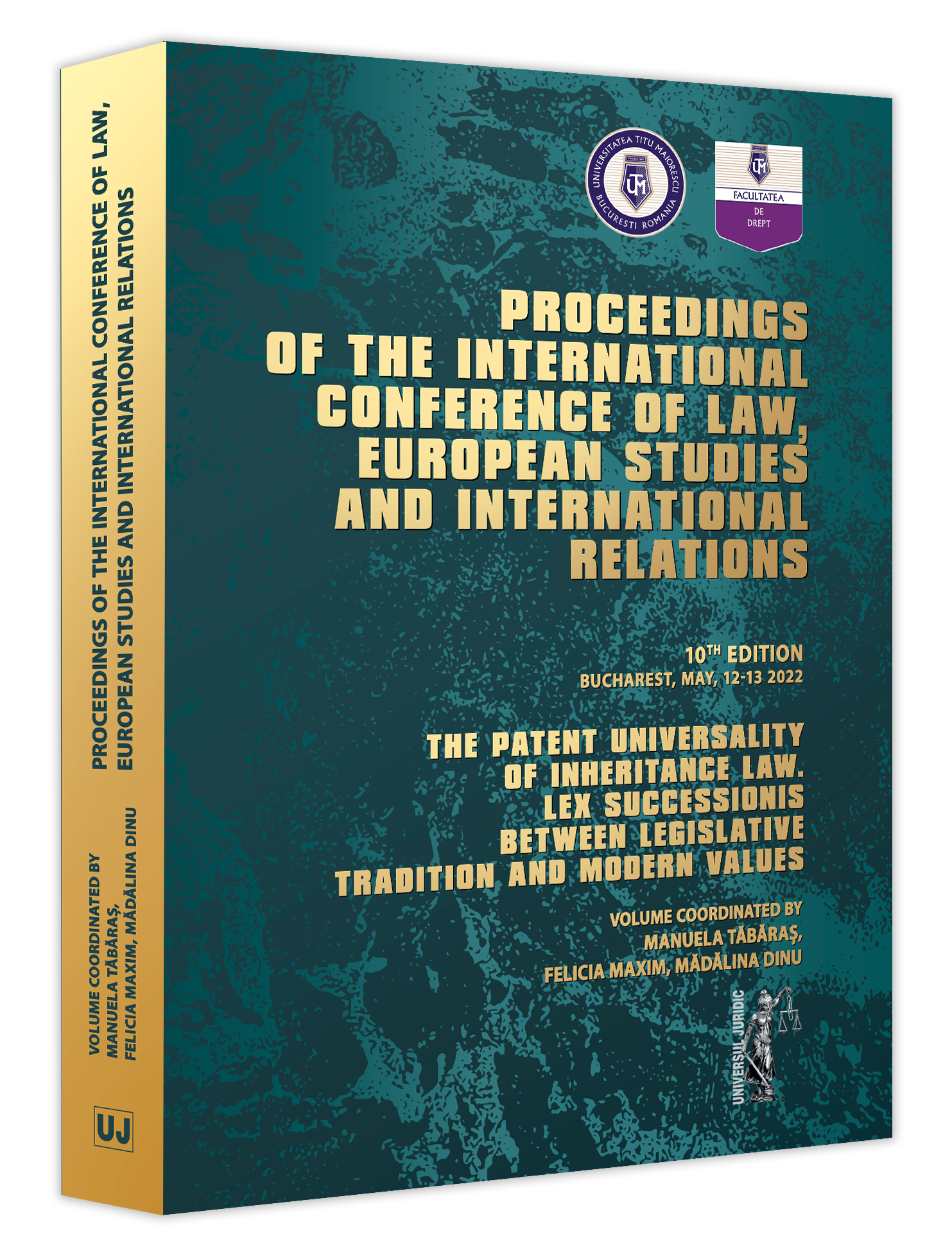INHERITANCE IN ROMAN LAW – FROM A DENIED CONCEPT TO AN ARCHETYPE
INHERITANCE IN ROMAN LAW – FROM A DENIED CONCEPT TO AN ARCHETYPE
Author(s): Alina-Monica AxenteSubject(s): Law, Constitution, Jurisprudence, Civil Law, Roman law
Published by: Editura Hamangiu S.R.L.
Keywords: legal succession; will; inheritance vocation; reforms of the praetors; legal framework of inheritance;
Summary/Abstract: To believe that Roman law is an allegory of the past, a legal construction without a correspondent in modern law is a sophistry due perhaps to the lack of depth in understanding the Roman spirit. The timelessness of the legal institutions created by the Romans finds its source in their very spirit painted in paradoxical nuances. Thus, as conservative as they were innovative. The meeting point of their conservatism, pragmatism and creativity can be likened to a real Big Bang in law. As a result, both the Continental legal system and the Anglo-Saxon system have deep Roman roots. While the Roman- Germanic system (especially our legal system) took over the legislative technique, the legal vocabulary, the Roman institutions and principles, the Anglo-Saxons surprisingly took over the very spirit of Roman law, a system of law in which fairness and good faith exceeds the limits imposed by formalism. The idea of transmitting the patrimony mortis causa has not animated the creators of Roman law since ancient times, being the product of a long ideological and social evolution. In the Gentile era, such an idea was inconceivable given that even the transmission of property by inter vivos deeds was not allowed. In this context, how can the transition from the vehement rejection of the concept of the transfer of property due to death to a system of succession that would be a real model for modern legal systems be explained? This article aims to answer exactly this question.
Journal: Conferința Internațională de Drept, Studii Europene și Relații Internaționale
- Issue Year: X/2022
- Issue No: X
- Page Range: 547-555
- Page Count: 9
- Language: English

